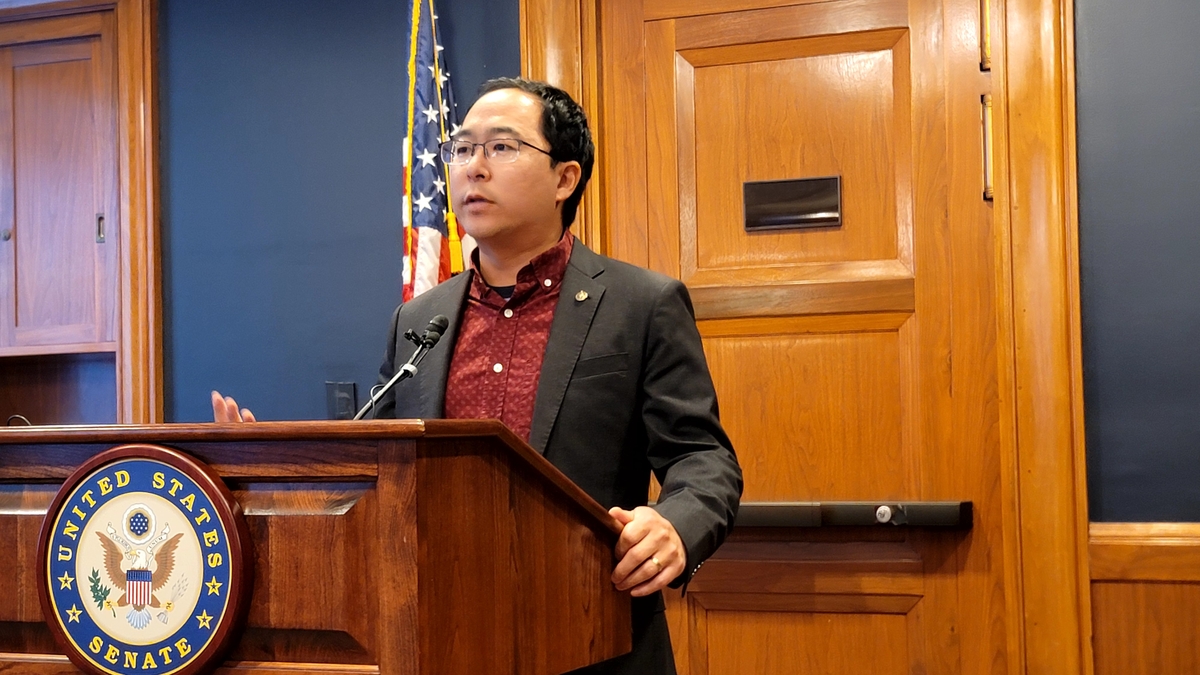U.S. can have USFK 'strategic flexibility' while ensuring extended deterrence for S. Korea: Sen. Kim

WASHINGTON, Aug. 28 (Yonhap) -- The United States can maintain "strategic flexibility" of its troops in South Korea while also ensuring nuclear deterrence to protect the Korean Peninsula, a U.S. senator said Thursday, noting that America's security posture should be "nimble" enough to respond to evolving security needs in the Indo-Pacific.
Sen. Andy Kim (D-NJ) made the remarks during a press conference amid concerns in Seoul that Washington's apparent move to expand the operational scope of the 28,500-strong U.S. Forces Korea (USFK) under the concept of "strategic flexibility" could weaken USFK's longstanding focus on deterring North Korean threats.
"We can have strategic flexibility while also having extended deterrence," Kim said, referring to the U.S.' commitment to using the full range of its military capabilities, including nuclear arms, to defend its Asian ally.
"We can assure South Korea of our deterrence capabilities (to) be able to help protect the Korean Peninsula while also making sure we are having that strategic flexibility for addressing any contingencies, any issues that come up in the Indo-Pacific," he added.
Kim called the Indo-Pacific a "very dynamic and potentially dangerous" region, emphasizing the need for the U.S. to address evolving security needs in the region, in an apparent show of his support for the strategic flexibility concept.
The role and operational scope of USFK is part of ongoing efforts to "modernize" the Seoul-Washington alliance as U.S. President Donald Trump's administration is apparently seeking to ensure that USFK personnel and assets can be mobilized for operations outside the Korean Peninsula, including those related to contingencies involving China.
On the USFK troop number, Kim indicated his opposition to any unilateral drawdown.
"Personally, I don't think we should be changing the troop levels unless there's some other agreement that is made between United States and South Korea," he said.
He added, "What I constantly say is that I don't want to see South Korea surprised by any announcements (by the U.S.) When it comes to troop levels or security, they are a strategic ally. They deserve to be consulted and talked to."
Commenting on Monday's summit between South Korean President Lee Jae Myung and Trump, the senator said he was glad to see a "strong working relationship" between the two presidents, Trump's commitment to visiting South Korea during the Asia-Pacific Economic Cooperation summit later this year, and the leaders' desire for trilateral cooperation with Japan.
sshluck@yna.co.kr
(END)





